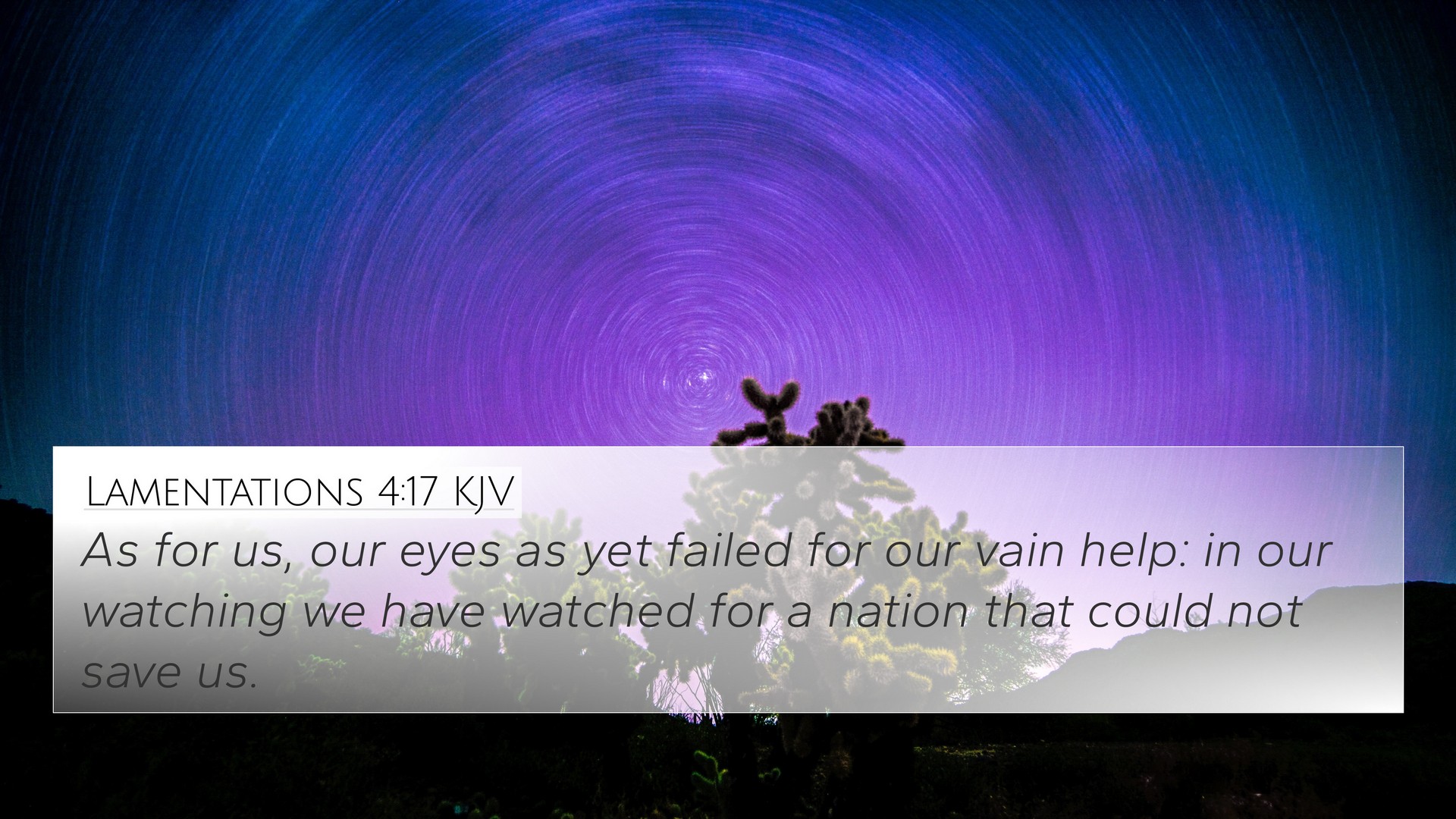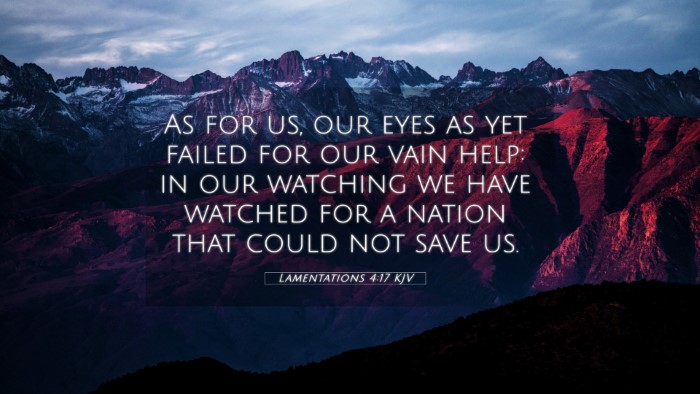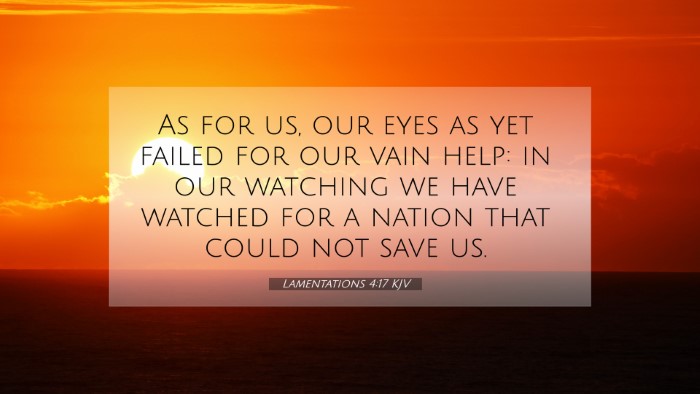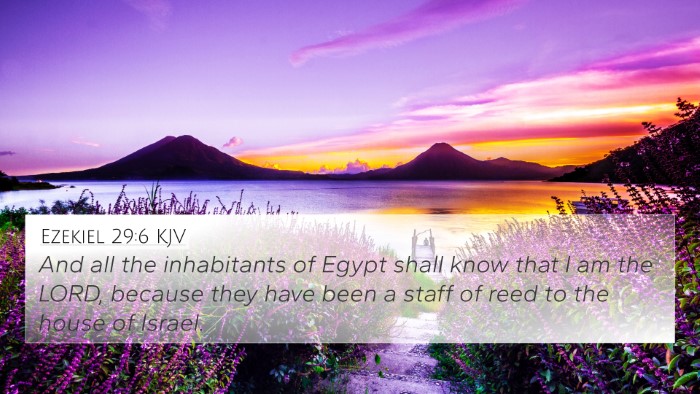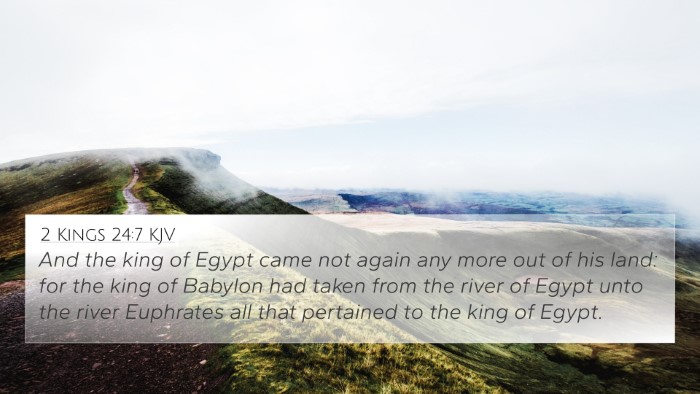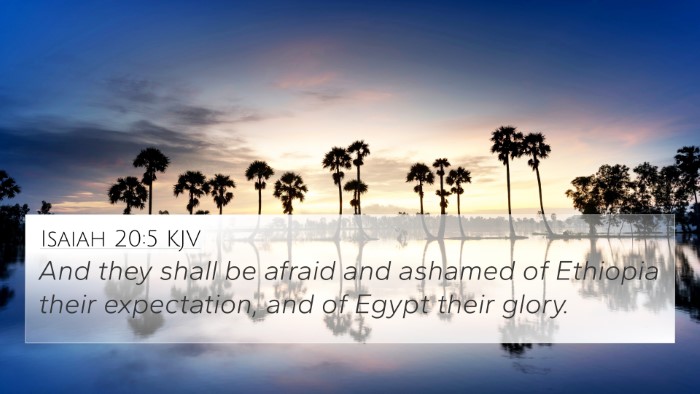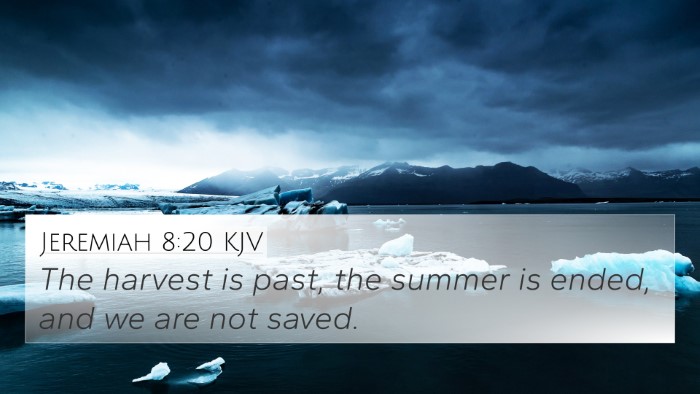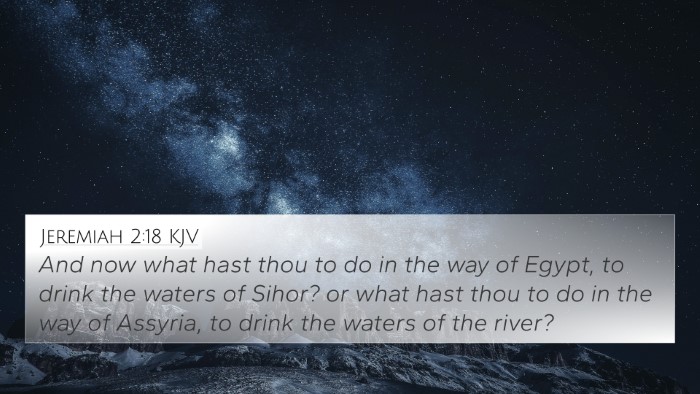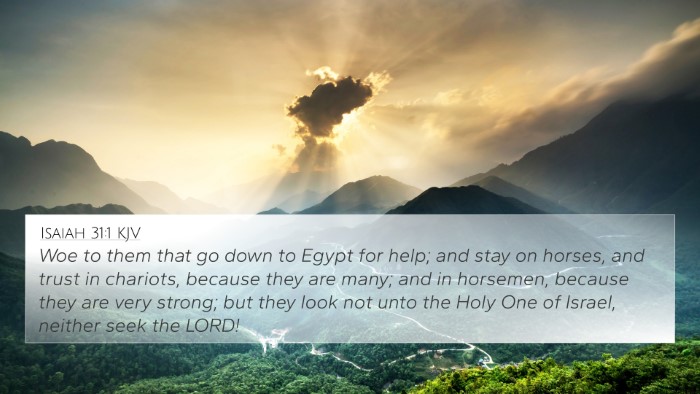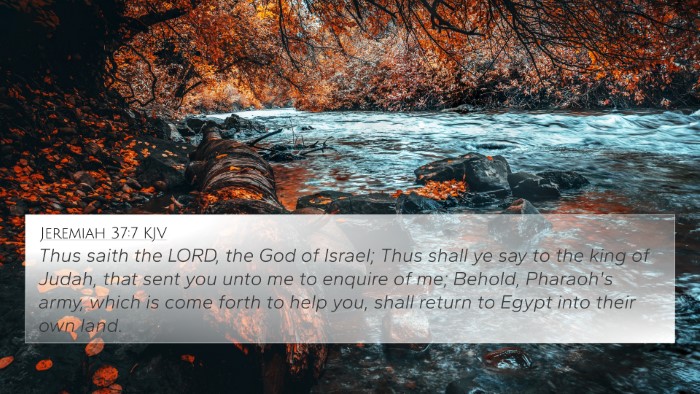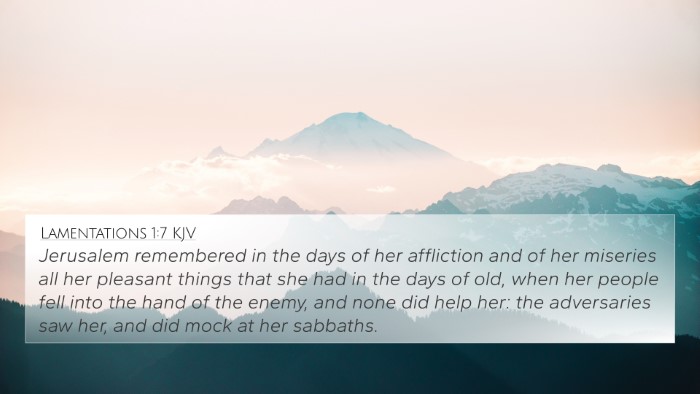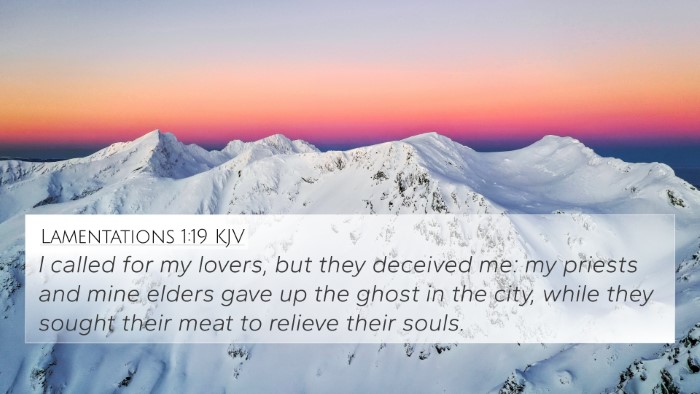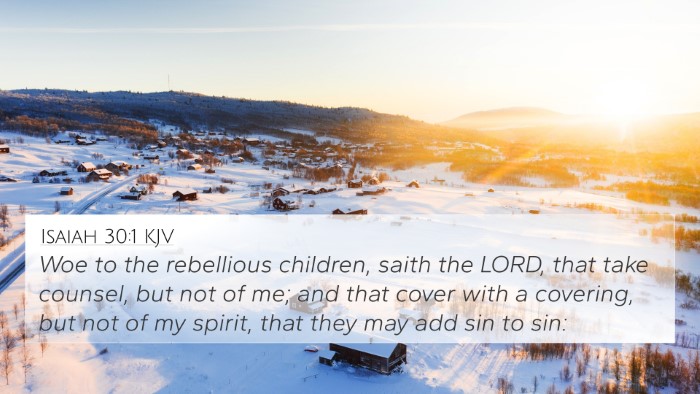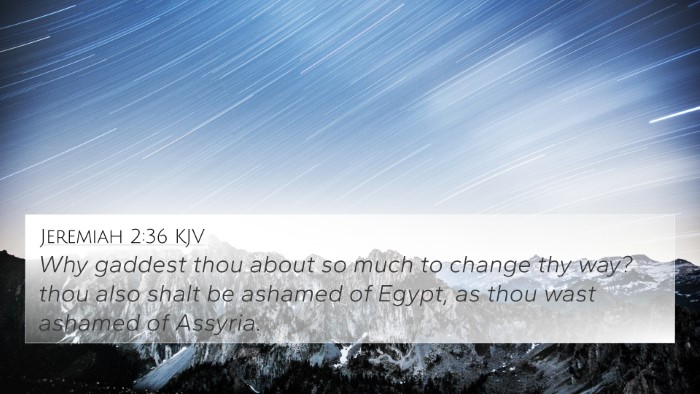Lamentations 4:17 - Meaning and Interpretation
Bible Verse: Lamentations 4:17
"As for us, our eyes as yet failed for our vain help: in our watching we have watched for a nation that could not save us."
Contextual Overview
The book of Lamentations, traditionally attributed to the Prophet Jeremiah, is a profound expression of sorrow over the destruction of Jerusalem. In Lamentations 4, the author describes the dire state of the people as they reflect on their suffering and loss. This verse specifically highlights the sense of hopelessness that envelops them, as they waited for assistance from nations that proved powerless.
Summarized Commentary Insights
- Matthew Henry: Henry notes that this verse underscores the futility of placing trust in human alliances. The people of Jerusalem were counting on foreign nations to provide help, yet these nations were incapable of delivering aid. This futility reflects a larger theme of misplaced hope in worldly sources rather than divine intervention.
- Albert Barnes: Barnes emphasizes the emotional weight of the verse, regarding the eyes of the people as a symbol of expectation and desire for help. He interprets the phrase "in our watching we have watched" as an illustration of the intense anticipation and yet profound disappointment faced by the exiled Israelites.
- Adam Clarke: Clarke examines the verse in the context of the entire chapter, highlighting that the people’s despair comes from reality failing to meet their hopes. He proposes that their reliance on external help symbolizes a deeper spiritual issue—their distance from God, leading to the collapse of their expectations.
Theological Significance
This verse serves as a poignant reminder of humanity's tendency to seek salvation in places that ultimately cannot provide it. It invites reflection on where individuals place their trust and how this can influence their spiritual journey.
Cross-References to Lamentations 4:17
Exploring connections with this verse enhances the understanding of its meaning:
- Jeremiah 2:36: "Why gaddest thou about so much to change thy way? thou also shalt be ashamed of Egypt, as thou wast ashamed of Assyria."
- Psalm 146:3-4: "Put not your trust in princes, nor in the son of man, in whom there is no help."
- Isaiah 31:1: "Woe to them that go down to Egypt for help… for the help of man is vain."
- Isaiah 30:3: "Therefore shall the strength of Pharaoh be your shame, and the trust in the shadow of Egypt your confusion."
- Micah 7:3: "They may do evil with both hands earnestly; the prince asketh, and the judge asketh for a reward; and the great man, he uttereth his mischievous desire..."
- Psalm 20:7: "Some trust in chariots, and some in horses: but we will remember the name of the Lord our God."
- Isaiah 59:9: "Therefore is judgment far from us, neither doth justice overtake us: we wait for light, but behold obscurity; for brightness, but we walk in darkness."
- Jeremiah 14:8: "O the hope of Israel, the saviour thereof in time of trouble, why shouldest thou be as a stranger in the land, and as a wayfaring man that turneth aside to tarry for a night?"
- Hosea 5:13: "When Ephraim saw his sickness, and Judah saw his wound, then went Ephraim to the Assyrian, and sent to king Jareb: yet could he not heal you, nor cure you of your wound."
- Romans 8:20: "For the creature was made subject to vanity, not willingly, but by reason of him who hath subjected the same in hope."
Connections to Broader Themes
This verse, while rooted in Lamentations, invites readers to identify thematic connections across Scripture, highlighting the consistent message regarding reliance on God over earthly powers. The emphasis on divine rather than human support brings clarity to various passages throughout both the Old and New Testaments.
Conclusion
Lamentations 4:17 stands as a powerful reminder for believers to evaluate where they turn in times of trouble. By cross-referencing related biblical texts, readers can gain a richer understanding of the themes of hope, disappointment, and the need for divine intervention. Understanding this verse within the broader narrative of Scripture enhances its impact and relevance in the faith journey.
